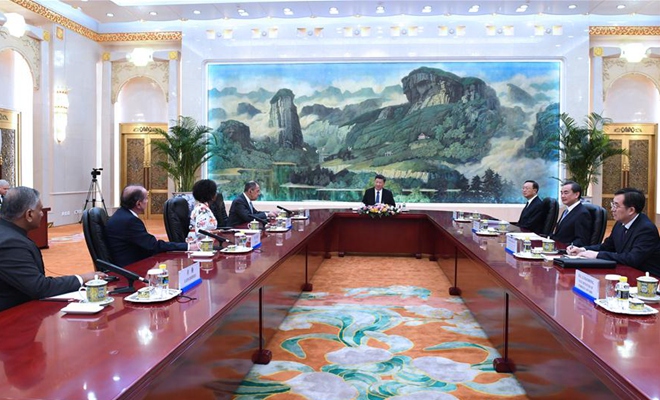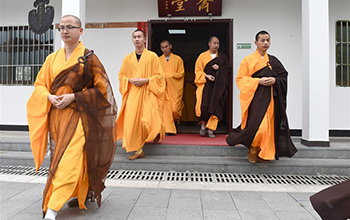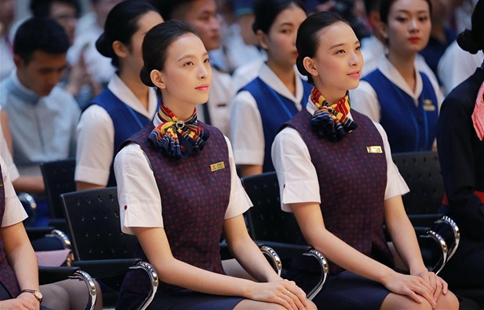HONG KONG, June 20 (Xinhua) -- Margaret Chan, director-general of the World Health Organization (WHO) said she was glad that the WHO and its partner organizations have made great achievements in the past 10 years, with people's health condition and life expectancy largely improved.
The number of deaths due to malaria and AIDS dropped by 50 percent in the past 10 years; in 2015, child mortality for the first time dropped to less than 6 million, half of that in 1990, and the number of tuberculosis cases also sharply declined, Chan said in a written interview with Xinhua when looking back on the past 10 years of her work in the WHO.
Chan, who will finish her second five-year term as the WHO chief at the end of this month, has spared no effort in safeguarding global public health, just as what she promised - "to work tirelessly" - when appointed to the post 10 years ago.
Chan had led the health department of Hong Kong for almost 10 years before joining the WHO in 2003. She was elected director-general of the WHO in 2006, becoming the first Chinese national to head a UN specialized body. She was re-elected in 2012.
Chan has faced a string of complex public health emergencies during her tenure, including the influenza A(H1N1), Middle East Respiratory Syndrome (MERS), Ebola and Zika.
Although the WHO failed to respond to the Ebola crisis that hit West Africa in 2004, it has led to the creation of the Health Emergencies Program, aiming at improving the organization's response toward health crisis in the future.
During Chan's term as chief of Hong Kong's health department, her courage and calmness when dealing with the deadly Severe Acute Respiratory Syndrome (SARS) outbreak in 2003 has impressed many.
"The SARS epidemic has allowed Hong Kong people to understand the importance of preventing contagious diseases," she said, adding that the epidemic prompted the establishment of the Center for Health Protection, and also a notification mechanism in handling cross-boundary public health emergencies among the Chinese mainland, the Hong Kong Special Administrative Region (SAR) and Macao SAR.
The new Prevention and Control of Disease Ordinance Bill passed in 2008 in Hong Kong has renewed the legal basis of the measures in the control and prevention of diseases, making it conform to the International Health Regulations issued by the WHO.
Chan said these measures largely enhanced Hong Kong's ability in disease control and prevention. Hong Kong has improved a lot when confronting the influenza A(H1N1), avian flu, MERS and Zika.
"We hope that Hong Kong's notification mechanism can act as an example for cross-border regions when building cooperative actions in disease control and prevention," she added.
Regarding the threat of contagious diseases, Chan said epidemic has got no border and the WHO has identified nine dangerous pathogens, which are most prone to generate epidemics.
Gearing up to tackle the next epidemic is one of WHO's priorities. Chan said she is confident that her successor Tedros Adhanom from Ethiopia and his co-workers in the organization will be capable of dealing with different challenges.
Hong Kong is celebrating the 20th anniversary of its return to the motherland on July 1, the same day when Chan will step down after 10 years of service in the Geneva-based organization. It is also the time for Lam Cheng Yuet-ngor to take office as the first female chief executive of the Hong Kong SAR.
Chan said she has known Lam for many years and believed Lam's integrity, capability, passion and dedication will serve Hong Kong well.
"I wish to come back to Hong Kong and spend time with my family after leaving office," Chan said when asked about her future plans, showing her affection for Hong Kong, where she was born and raised.



















